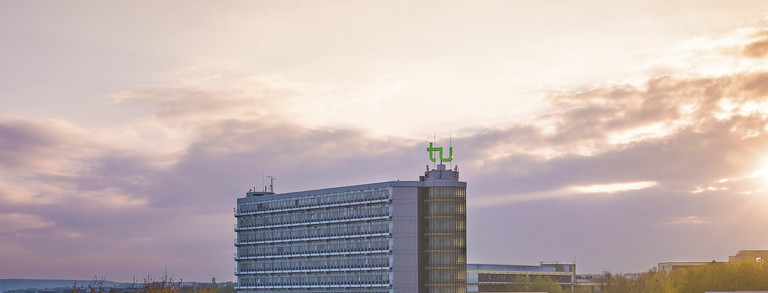TU Students Win Competition With Sustainable Neighborhood Concept
- Top News
- Studying & Teaching at TU Dortmund University

“Students Re-Inventing Cities” is an international concept competition that has seen 1000 students worldwide develop ideas to make neighborhoods more sustainable and inclusive. To do this, 18 cities around the world selected small neighborhoods, blocks or main streets to redesign. A team of students from the Department of Spatial Planning, led by Prof. Karsten Zimmermann, submitted the winning concept for the Westwood/Highland Park district of Seattle in the United States.
The district is currently struggling with several problems. There is a lack of green spaces and cultural and leisure facilities, while at the same time many buildings are empty and partially dilapidated. The public space is strongly geared towards cars, and the area is dominated by countless parking spaces, leaving little in the way of infrastructure for pedestrians or cyclists. Poorly functioning waste disposal and issues with public safety also result in a lower quality of life for residents of Westwood/Highland Park, whose median income is below the city’s average.
The “Westwood Next Door” concept developed by the six TU students Sophie Holtkötter, Fatbardha Gela, Leonie Zickler, Fabia Scharf, David Bothor and Alina Tholen envisions a shift from car-oriented to people-oriented urban design. In keeping with the concept of the “15-minute neighborhood”, decentralized solutions and facilities should enable the residents to take care of all their daily needs in the quickest possible way. This not only saves time, but also reduces unnecessary car journeys and thus CO2 emissions. For example, a “maker’s area” is to be established in an empty warehouse, which will include a repair café and a co-working space, as well as a recycling station to help with the waste problem. The plan also calls for this building to be renovated using environmentally friendly materials.
Plans make the neighborhood more resistant to the impact of climate change
The neighborhood will continue to have significantly more green spaces, including a community garden where residents can grow fruit and vegetables themselves or compost organic waste. Small parks with playgrounds and cafés should give parents and children the chance to spend their free time outside. Bus services will be enhanced, while sidewalks, crosswalks and bicycle lanes are to be expanded. This could reduce the number of cars in Westwood/Highland Park and allow parking lots to be removed and turned into green space – making the neighborhood more resilient to rising temperatures or heavy rainfall. In addition, this would open up opportunities to use streets for festivals or flea markets.
“The competition was enriching to all of us,” says Prof. Karsten Zimmermann, Professor of European Planning Cultures at the Department of Spatial Planning. “With the contest being held digitally due to the pandemic, we saw and used this as an opportunity to internationalize teaching. The students had to deal with quite a demanding planning problem in Seattle, a context that was foreign to them. I am delighted that it was a success.” The city of Seattle now wants to take the ideas on board and implement them.
The “Students Re-Inventing Cities” competition was organized by the United Nations human settlements program, UN Habitat; the international network of cities, C40 Cities Climate Leadership Group; and the Global Covenant of Mayors for Climate and Energy. Over 1000 students from 150 universities worldwide submitted their ideas for improving the 18 proposed neighborhoods.
Video of the project presentation:




![[Translate to English:] Partner Four hands are holding the green logo of TU Dortmund University](/storages/tu_website/_processed_/1/d/csm_Partner_Nicole_Rechmann_KW_40b35bb3fd.jpg)




![[Translate to English:] Forschung An apparatus with tubes in a laboratory](/storages/tu_website/_processed_/0/c/csm_Forschung_Juergen_Huhn_cbd34afd6d.jpg)
![[Translate to English:] Studium Five students are sitting in a lecture hall. They are talking to each other.](/storages/tu_website/_processed_/c/9/csm_Studium_FelixSchmale_81d94adc86.jpg)





